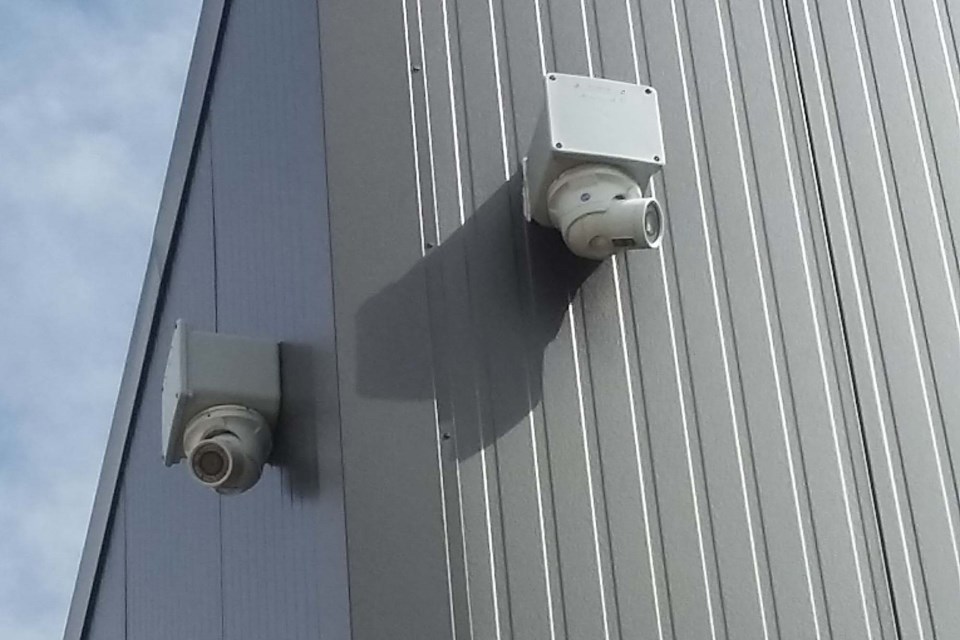It's one thing to see somebody in your neighbourhood testing which car doors are unlocked during the dark and quiet hours of the night. It's another thing entirely to have a video from your home surveillance system that shows the person's face, their clothing, their mannerisms, how they walk, and even the make, model, and licence plate of their vehicle.
These security camera technologies are becoming more advanced and more prevalent around people's homes. Those are some of the many reasons the St. Albert RCMP detachment established its Voluntary Surveillance Camera Registry, which can be a valuable tool in helping officers solve residential and business crime, and to stop it before it even happens.
"It’s a good deterrent because it can be seen. Criminals can see that. It also is a great tool of identifying. The cameras keep getting better and better; even the lower quality cameras are incredibly good for detail. A lot of the doorbell cams, we’ve been able to get good still photos from them to identify for different cases over the years," said Const. MJ Burroughs.
"That’s definitely something that I would encourage anybody to invest in if they’re looking at different home securities."
The program works to allow residents and business owners to register with the RCMP if they are willing to offer their video surveillance footage when requested for any ongoing criminal investigation. When crime happens, it's standard procedure for the RCMP to canvas the neighbourhood, knock on people's doors and ask if anyone saw anything. They also ask about home security video cameras.
If the RCMP knew who had the cameras in the first place, this stage of the investigation would go a lot faster and potentially help to hasten a positive outcome. This is one big reason why the RCMP encourages anyone with a home video surveillance system to get with the program.
"It would make one less step for officers to have to canvas when they know houses one, two, three, and four all have surveillance and they’ve all given permission for us to look at it or contact them to be viewed."
Burroughs strongly encouraged people who have video footage of criminal or suspicious activity to contact the RCMP first, rather than posting on Facebook or Twitter. Doing that can be helpful, she suggested, but sometimes it can hinder the investigation.
"They might not know that they have information about more severe-type crime. They might just see somebody that’s walking through their neighbourhood and looking at door handles of cars, but in fact, we may have a complaint of an individual who matches this description involved in something more serious. My first suggestion would be to always contact the RCMP if they have any kind of footage that seems concerning."
She also stressed the importance of people not taking matters in their own hands.
Citizens who do sign up for the voluntary registry will be advised to hold onto their video footage for at least 12 hours to give the RCMP time to obtain it. Because it is a voluntary program, any registrant can withdraw at any time. The registrant's privacy is of the utmost importance to the RCMP. Only a very few staff members at the detachment can access their information.
Should a person's video footage be useful to an investigation that ends up in court, they can sign an affidavit so they don’t have to be a witness.
"As more and more people invest in these systems, they’re becoming more and more prevalent to our investigations," she said.
Though the program started in September 2020, there are only about 75 homeowners who have signed up. Burroughs said the pandemic has made it more difficult to get the word out through the City's public events, but people can expect to see RCMP members bring information about it when they show up to block parties during the summer.
People can learn more and sign up by email at [email protected].




